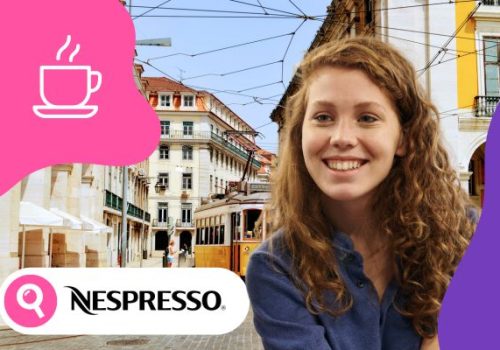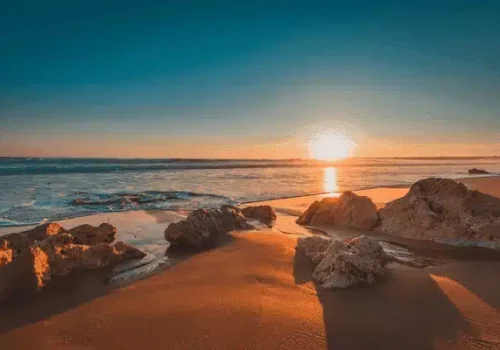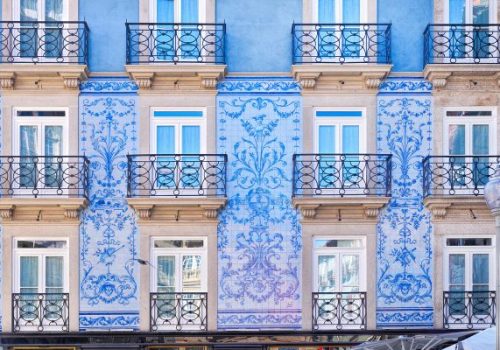Live and work in Algarve
The Algarve, Portugal’s southernmost region, is a sun-drenched paradise known for its golden beaches, dramatic cliffs, and charming whitewashed towns. Beyond its reputation as a top vacation destination, the Algarve offers a lifestyle that combines natural beauty with professional opportunities. Whether you’re seeking work in its vibrant tourism sector, exploring remote work possibilities, or simply dreaming of a laid-back Mediterranean life, the Algarve provides an exceptional setting. This comprehensive guide explores living and working in the Algarve, including job opportunities, accommodation, cost of living, and tips for integrating into this enchanting region.
Latest jobs in Portugal
- Customer support
- Portugal
- Customer support
- Portugal
- Customer support, Marketing
- Portugal
Working in the Algarve
Working Conditions in the Algarve
The Algarve offers a relaxed yet productive work environment. The standard 40-hour workweek, usually Monday through Friday, is the norm. Employees benefit from 22 paid annual leave days, in addition to 13 public holidays, ensuring a healthy work-life balance.
Seasonal work is common, particularly in tourism and hospitality, where many roles are tailored to the region’s summer influx of visitors. For those seeking year-round employment, positions in real estate, education, and remote work are growing. Learning Portuguese is advantageous, although English proficiency is often sufficient in tourism and expat-friendly sectors.
Job Opportunities in the Algarve
The Algarve’s economy is deeply tied to its natural and cultural assets. Key industries include tourism, hospitality, real estate, healthcare, and education.
Tourism and Hospitality: The Algarve’s resorts, hotels, and restaurants are always looking for enthusiastic professionals. Roles in hotel management, event planning, and customer service are abundant. English-speaking expats are particularly valued for their ability to connect with international guests.
Real Estate and Property Management: With its popularity among retirees and expats, the Algarve’s real estate market is thriving. Opportunities exist in sales, property management, and rentals, especially for multilingual professionals.
Remote and Digital Work: The Algarve’s relaxed lifestyle and reliable internet make it a magnet for freelancers, remote workers, and digital nomads. Co-working spaces in cities like Faro and Lagos cater to professionals seeking flexibility.
Healthcare and Education: International schools and clinics are key employers for expats with relevant qualifications. Teaching English or working in administrative roles at private institutions is particularly popular.
Summer Jobs: Seasonal opportunities flourish during the summer months, especially in surf camps, beach bars, and adventure tourism. These roles often prioritize energy and enthusiasm over experience.
Salaries in the Algarve
While salaries in the Algarve are lower than in Lisbon or Porto, they align with the region’s affordable cost of living.
- Tourism and hospitality: €900–€1,500 per month
- Real estate and property management: €1,800–€3,500 per month
- Healthcare professionals: €1,500–€3,000 per month
- Education: €1,200–€2,500 per month
- Seasonal and part-time roles: €700–€1,200 per month
Though wages may seem modest, many roles in tourism and hospitality include perks such as meals, accommodation, or tips, enhancing overall income.
Income Tax in Portugal
Portugal has a progressive income tax system, with rates ranging from 14.5% to 48%, depending on income. Social security contributions, covering healthcare and pensions, are taxed at 11% of gross income. Expats may qualify for the Non-Habitual Resident (NHR) tax scheme, which provides favorable rates for up to 10 years, particularly for those in high-demand professions or receiving foreign income.
Working Culture in the Algarve
Workplaces in the Algarve mirror the region’s easygoing lifestyle. There’s a strong emphasis on teamwork and respect, with a preference for face-to-face communication. Punctuality is appreciated, but the overall atmosphere tends to be relaxed rather than rigid. Social connections are vital; building trust and relationships often plays a key role in career success. Employers value employees who integrate into the local community and show a willingness to adapt to the region’s traditions and pace.
Living in the Algarve
Benefits of Living and Working in the Algarve
Living in the Algarve means embracing a lifestyle steeped in natural beauty and cultural richness. The Mediterranean climate, with over 300 days of sunshine annually, ensures an outdoor-oriented life. The region offers world-class beaches, fresh seafood, and a welcoming community of both locals and expats. It’s a place where your weekends can be spent exploring cliffside trails, indulging in local cuisine, or sailing along the Atlantic coast.
Accommodation in the Algarve
Finding housing in the Algarve is generally easier and more affordable than in larger cities like Lisbon. Rent prices vary by location:
- Faro and Lagos city centers: €800–€1,200 per month for a one-bedroom apartment
- Smaller towns and villages: €500–€800 per month
- Coastal luxury properties: €1,500–€3,000 per month
Popular areas for expats include Faro, Lagos, and Albufeira, known for their vibrant communities and proximity to amenities. Websites like Idealista and Imovirtual are great for finding rental options.
Cost of Living in the Algarve
The Algarve is one of the most affordable regions in Western Europe, making it attractive to both families and retirees. Monthly expenses for a single person typically range from €1,200 to €1,800, excluding rent.
- Groceries: €250–€400 per month
- Dining out: €10–€25 per meal
- Utilities: €100–€200 per month
- Public transport: €40–€60 monthly pass
Despite its affordability, the Algarve provides a quality of life that rivals much more expensive locations.
Public Transport in the Algarve
Public transport is reliable, with buses and trains connecting major towns and cities. A monthly travel pass costs around €40, providing unlimited travel within the region. For more remote areas, renting a car is often the most practical option, and cycling is popular thanks to well-maintained paths.

Eating in the Algarve
The Algarve’s cuisine is a celebration of fresh, local ingredients. Dishes like cataplana (seafood stew) and grilled sardines showcase the region’s maritime heritage. Weekly farmers’ markets offer fresh produce, honey, and handmade goods, making grocery shopping a delight. Dining out is affordable, with options ranging from casual beachside cafes to fine dining establishments offering modern twists on traditional recipes.
Places to Go Running or Working Out
The Algarve’s natural beauty makes fitness part of daily life.
- Cliffside trails: Routes near Praia da Marinha and Ponta da Piedade offer breathtaking views for runners and hikers.
- Beaches: The firm sands of Meia Praia or Praia da Rocha are perfect for morning jogs.
- Outdoor fitness areas: Many towns feature public workout stations in parks or along promenades.
Gyms and yoga studios in cities like Faro and Portimão cater to those preferring structured workouts.
What to Do on Weekends
Weekends in the Algarve are a blend of adventure and relaxation.
Explore the Benagil Caves or take a boat trip to discover hidden beaches. Visit historic towns like Silves, with its Moorish castle and cobbled streets, or wander through bustling markets in Loulé. Outdoor enthusiasts can hike the Via Algarviana, a long-distance trail winding through the region’s rural heart. In the evenings, enjoy live music at beach bars or attend local festivals celebrating everything from sardines to wine.
Weather in the Algarve
The Algarve enjoys a Mediterranean climate, with summers averaging 30°C (86°F) and mild winters around 15°C (59°F). The region’s year-round sunshine encourages an active, outdoor lifestyle, making it a perfect escape from harsher climates.
Living and working in the Algarve combines professional opportunities with an unparalleled quality of life. Whether you’re drawn to its vibrant economy, natural beauty, or welcoming community, the Algarve is a place where life feels fuller, richer, and endlessly inspiring. With the right preparation and an adventurous spirit, you’ll find that the Algarve isn’t just a place to visit—it’s a place to call home.








